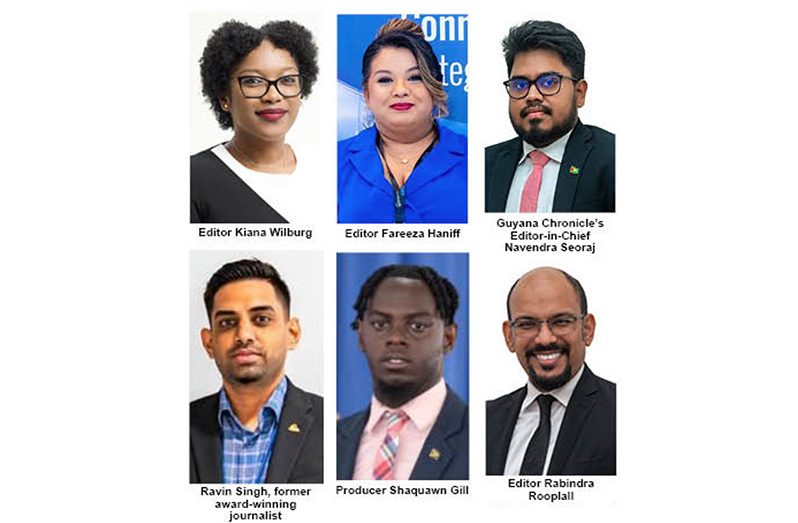SEVERAL members of the local media fraternity have vehemently criticised the Guyana Press Association (GPA) for its recent stance on President Dr. Irfaan Ali’s call to reevaluate modern media practices.
The head of state’s remarks made on World Press Freedom Day were intended to spark discourse on the evolving challenges posed by Artificial Intelligence (AI) and the complexities of distinguishing between factual reporting and misinformation.
Editor Kiana Wilburg, in her response to the GPA’s missive via her social media page, expressed her support for the President’s initiative, stating, “His message was one that called for us to reflect on modernising our outlook of the media landscape, and who are the actors that can help to effect real change in this arena.”
She emphasised the importance of inclusivity in media leadership, and urged that there be broader recognition of new roles within the media ecosystem.
“The media landscape is rapidly evolving, but advocacy to protect this arena should not come at the expense of rejecting a genuine invitation from the President to reconsider those who can be meaningful contributors in the process,” she said.
Meanwhile, Fareeza Haniff, another editor, in her response highlighted contradictions within the GPA’s leadership, calling out the hostility towards the current administration despite its mandate to represent all media workers impartially.
Added to this, she pointed out the lack of reform in the Association’s outdated Constitution, noting, “There has been no reform of its outdated Constitution to include workers of ‘Online media’ as members.”
Further, Editor-in-Chief of the Guyana Chronicle, Navendra Seoraj questioned the GPA’s interpretation of President Ali’s remarks, saying: “How does a paper (intended for discussion) on the “evolving” definition of media equate to licensing, authoritarianism, etc…? Did the ENTIRE executive body of the GPA read and approve such a statement, which is filled with conjecture and attacks?”
He added that the Association must also examine ways in which it could evolve in the free environment instead of practising selective activism and releasing statements riddled with speculation.
Ravin Singh also echoed concerns over the GPA’s internal practices, questioning their credibility in advocating for self-regulation, pointing out instances of constitutional violations within the organisation.
Singh raised valid concerns about the legitimacy of the GPA’s claims to self-regulate amidst internal inconsistencies.
Editor Rabindra Rooplall also underscored the urgency of addressing misinformation in the digital age, cautioning against conflating responsible media evolution with political interference.
Meanwhile, Shaquawn Gill, a producer, criticised the GPA for what he perceived as selective outrage, stating, “An association that took the time to buse about who is a journalist and who understands what it means to disseminate information effectively…”
Further to this, Gill highlighted the Association’s inconsistency in defending media workers across all spheres.
He said, “When State media workers get called all kinds of derogatory names just for working at State media, they say nothing in defence of them.”



.jpg)








